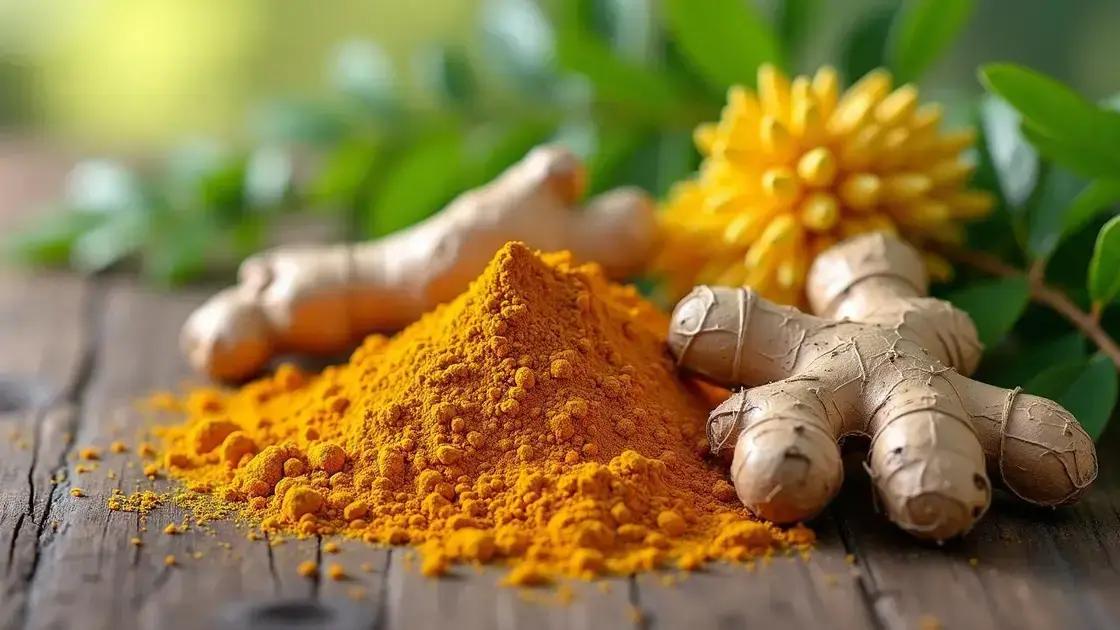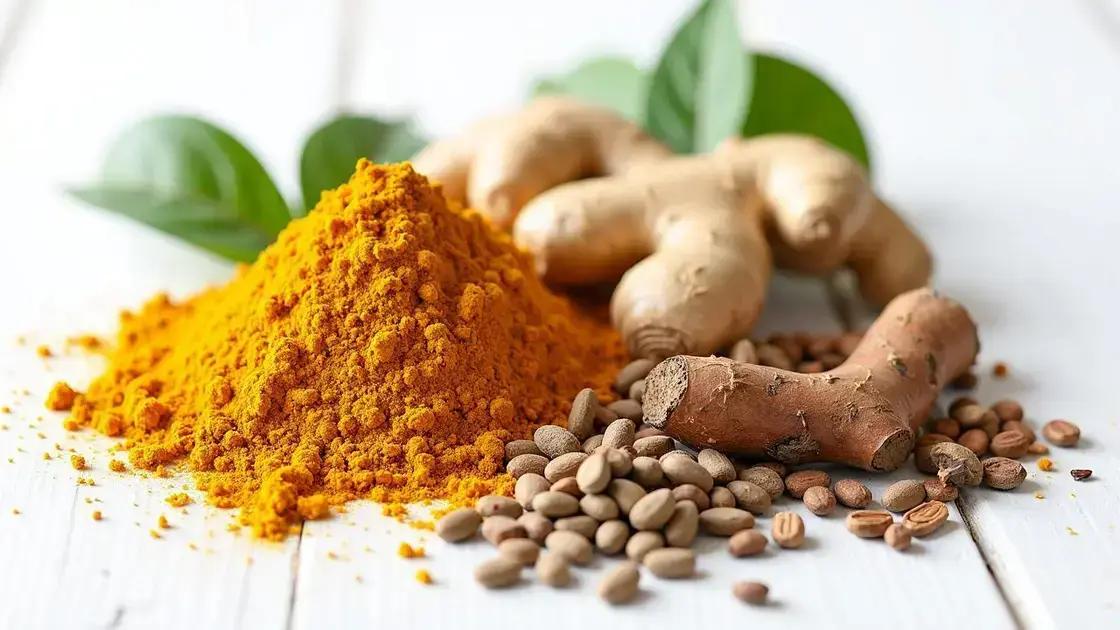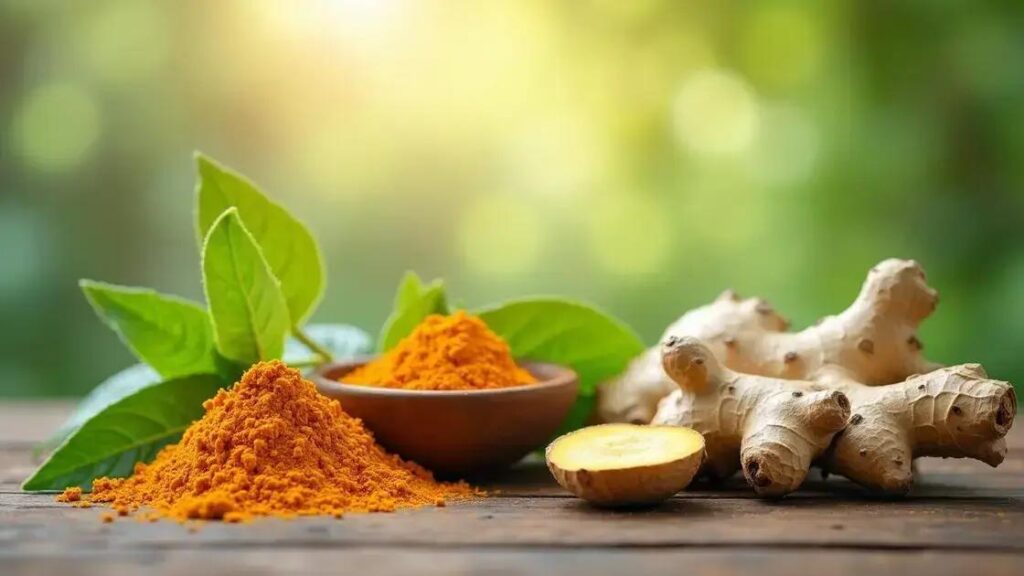Herbal remedies play a crucial role in supporting joint health by offering natural relief from pain and inflammation, with effective options like turmeric, ginger, and boswellia. Their anti-inflammatory properties can enhance mobility and overall well-being, making them a valuable addition to any joint health routine.
Herbal remedies are gaining attention as powerful alternatives for supporting joint health. Many people seek natural ways to alleviate joint pain and improve mobility, and herbal solutions may hold the key. In this article, we’ll dive into the role of herbal remedies in supporting joint health, exploring effective options, benefits, and expert tips to maximize their potential.
Understanding Herbal Remedies for Joints

Herbal remedies have been used for centuries to support joint health, providing natural alternatives to conventional treatments. Understanding these remedies helps in selecting the right options for those seeking relief from joint pain and inflammation.
What Are Herbal Remedies?
Herbal remedies consist of plants and their extracts utilized for therapeutic purposes. They can come in many forms, including teas, capsules, tinctures, and topical creams. The key is to choose herbs known for their anti-inflammatory and analgesic properties, which can help reduce joint pain.
Common Herbal Ingredients
Several herbs are particularly effective for promoting joint health:
- Turmeric: Contains curcumin, a powerful anti-inflammatory compound that can help relieve arthritis symptoms.
- Ginger: Known for its anti-inflammatory effects, ginger can reduce swelling and pain.
- Boswellia: This herb has been shown to alleviate joint pain by decreasing inflammation and improving mobility.
- Willow Bark: Often referred to as nature’s aspirin, it has been used for pain management and reducing inflammation.
How to Use Herbal Remedies
When incorporating herbal remedies into your routine, it’s important to consider the dosage and form. Teas can be soothing, while capsules offer convenience. Always consult a healthcare professional to find the best options tailored to your needs.
Safety and Precautions
While herbal remedies are generally safe, they can interact with prescription medications. Always check with your doctor before starting a new herbal regimen, particularly if you are pregnant, nursing, or have underlying health conditions.
Top Herbal Remedies to Consider

When dealing with joint health, specific herbal remedies can provide significant relief and support. Here are some top herbal remedies to consider:
1. Turmeric
Turmeric is known for its vibrant yellow color and contains curcumin, which fights inflammation and reduces pain. Adding turmeric to your diet or taking it as a supplement can help alleviate symptoms of arthritis.
2. Ginger
Ginger is another powerful herb that has anti-inflammatory properties. Consuming ginger tea or incorporating fresh ginger into your meals can help reduce joint pain and improve your mobility.
3. Boswellia
Boswellia, often called frankincense, has been used for centuries for its healing properties. It inhibits the production of inflammatory molecules, making it an excellent choice for those suffering from joint conditions.
4. Willow Bark
Willow bark contains salicin, which is similar to aspirin. It has been traditionally used to manage pain and inflammation, making it a popular option for joint health. It is available in teas or dietary supplements.
5. Devil’s Claw
Devil’s Claw is an herb native to Africa that has been shown to reduce pain and improve joint functioning. This herb is commonly found in capsules or as a tincture.
6. Nettle
Nettle is a nutrient-rich herb that contains high levels of vitamins and minerals. It also has anti-inflammatory properties, making it useful for treating joint pain. You can use it in teas or capsules for daily supplementation.
Incorporating these herbal remedies into your routine can significantly enhance your joint health and overall well-being. However, always consult with a healthcare provider before starting any new treatment.
How These Remedies Support Joint Health

Understanding how herbal remedies support joint health is vital for anyone looking for natural pain relief. Each remedy works in its way, contributing to overall joint care and comfort.
1. Anti-inflammatory Effects
Many herbal remedies contain active compounds that help reduce inflammation in the joints. For example, curcumin in turmeric has strong anti-inflammatory properties, which can help decrease swelling and pain in conditions such as arthritis.
2. Pain Relief
Herbal remedies like willow bark provide pain relief similar to that of common pain medications. It contains salicin, which converts to salicylic acid in the body, helping alleviate pain and discomfort.
3. Improved Mobility
Herbal ingredients such as boswellia can enhance joint mobility. This herb works by inhibiting enzymes that cause inflammation, leading to improved flexibility and less stiffness in the joints.
4. Antioxidant Properties
Many herbs have antioxidant properties that help protect joint tissues from damage. For instance, ginger not only reduces inflammation but also fights oxidative stress, which can lead to joint deterioration.
5. Natural Approach to Wellness
Using herbal remedies promotes a holistic approach to joint health. They often come with fewer side effects compared to pharmaceutical options, allowing individuals to support their bodies naturally while managing joint conditions.
By incorporating these herbal remedies, you can create a more effective joint health routine that not only addresses pain but also contributes to overall wellness.
Expert Tips for Using Herbal Solutions

Using herbal solutions effectively can enhance their benefits for joint health. Here are some expert tips to help you get the most out of these natural remedies.
1. Consult with a Healthcare Provider
Before starting any herbal remedy, it’s important to consult with a healthcare provider. They can guide you on the right herbs based on your health history and current medications.
2. Start with Small Doses
When trying a new herbal remedy, begin with a small dose. This allows your body to adjust and helps you monitor any adverse reactions. Gradually increase the dosage as needed.
3. Stay Consistent
Like any treatment, consistency is key. Take your chosen herbal remedies regularly to experience the full benefits. Keeping a journal can help track your intake and any changes you feel.
4. Combine Remedies Wisely
Some herbs work well together, enhancing each other’s effects. For instance, combining turmeric with black pepper can improve curcumin absorption. However, it’s crucial to research combinations or consult a professional.
5. Observe for Side Effects
Always be aware of how your body responds to herbal remedies. If you notice any negative side effects, discontinue use and consult with a healthcare professional.
6. Focus on Quality
Choose high-quality herbal products from reputable sources. Look for standardized extracts to ensure you receive the active ingredients in effective amounts.
7. Lifestyle Matters
Incorporate healthy lifestyle habits along with herbal solutions. Regular exercise, a balanced diet, and sufficient hydration can all support joint health and improve the effects of herbal remedies.
In Summary: Embracing Herbal Remedies for Joint Health
Herbal remedies play a significant role in supporting joint health by offering natural alternatives to conventional treatments. From anti-inflammatory properties to pain relief, these remedies can enhance mobility and improve overall well-being.
By understanding the benefits, utilizing top herbal remedies, and following expert tips for effective use, individuals can incorporate these solutions into their daily routines. Consistency and awareness of quality are key factors to maximize results.
Ultimately, for those seeking relief from joint discomfort, embracing herbal solutions may become a valuable part of a comprehensive health strategy.
FAQ – Frequently Asked Questions About Herbal Remedies for Joint Health
What are herbal remedies for joint health?
Herbal remedies are natural solutions made from plants and their extracts that help support joint health and alleviate pain.
How do I choose the right herbal remedy?
Consult with a healthcare provider for personalized advice. Start with well-researched options like turmeric, ginger, and boswellia.
Are herbal remedies safe to use?
Most herbal remedies are safe when used correctly. However, it’s essential to consult a healthcare professional to avoid interactions with medications.
How do these remedies relieve joint pain?
Many herbal remedies have anti-inflammatory properties, which can reduce swelling and pain in the joints, improving mobility.
Can I use multiple herbal remedies together?
Yes, some herbs work well together, but it’s crucial to ensure they are compatible. Always consult a professional before combining remedies.
What lifestyle changes can support joint health?
Incorporate regular exercise, a balanced diet, and proper hydration, alongside herbal solutions, for optimal joint health.













